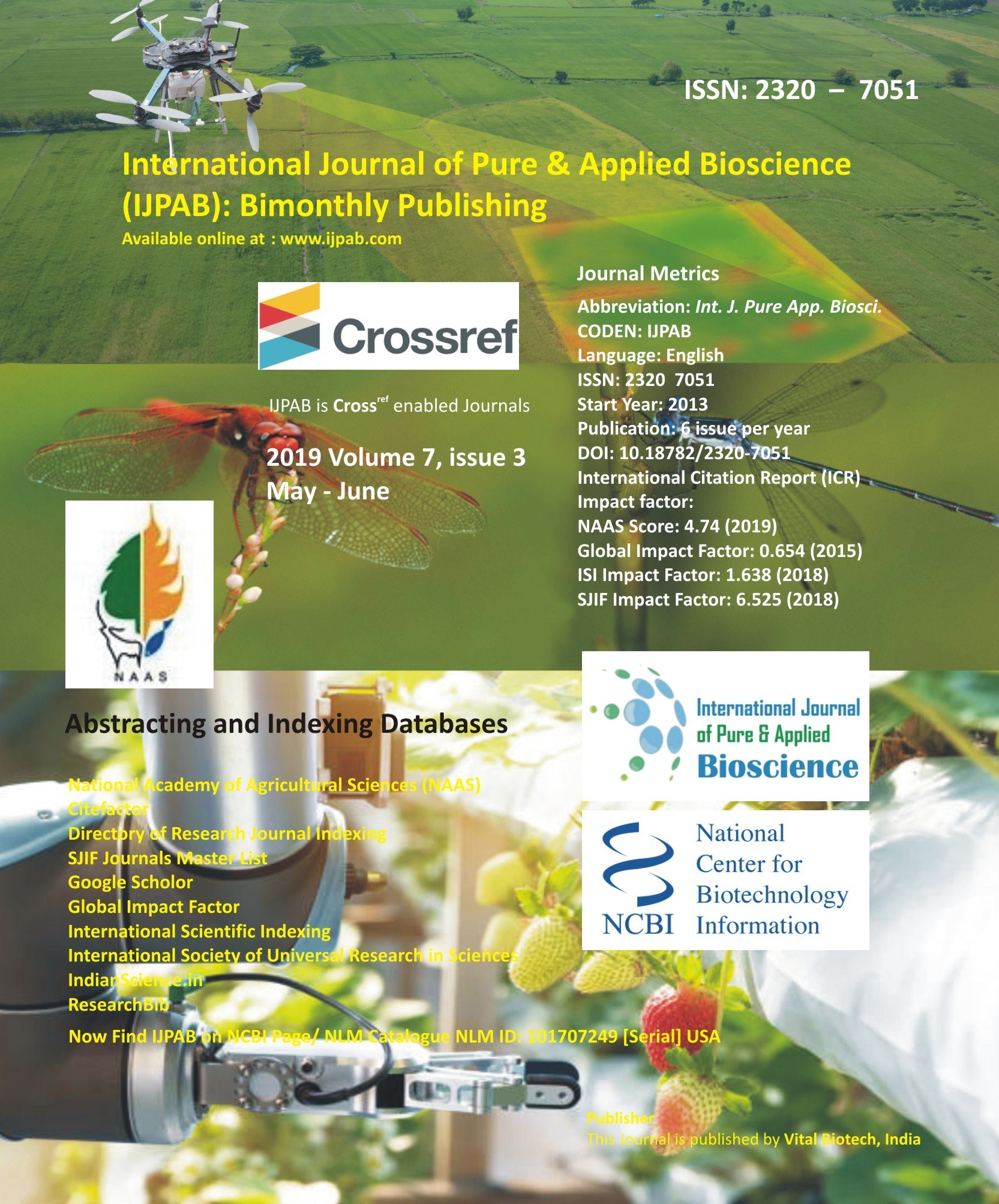
-
No. 772, Basant Vihar, Kota
Rajasthan-324009 India
-
Call Us On
+91 9784677044
-
Mail Us @
editor@ijpab.com
International Journal of Pure & Applied Bioscience (IJPAB)
Year : 2019, Volume : 7, Issue : 3
First page : (484) Last page : (502)
Article doi: : http://dx.doi.org/10.18782/2320-7051.7473
Perspective for Genetic Amelioration of Sugarcane towards Water Logged Conditions
Gulzar S. Sanghera* and Navdeep S. Jamwal
PAU, Regional Research Station, Kapurthala- 144601, Punjab, India
*Corresponding Author E-mail: sangheragulzar@pau.edu
Received: 1.05.2019 | Revised: 29.05.2019 | Accepted: 7.06.2019
ABSTRACT
Waterlogging or submergence or flooding is one of the important environmental constraints that reduces both growth and survival of sugarcane, which cause 15–45 % reduction in cane yield and sugar recovery. Extent of injury/damage due to waterlogging depends upon the genotypes, environmental conditions, stage of development and the duration of stress. The response of sugarcane for agro-morphological, physiological, biochemical and anatomical traits decide its tolerance under waterlogging conditions. The development of root and stalk aerenchyma, adventitious roots stimulated by ethylene and auxin help the plant to cope anoxia and hypoxia like conditions. Involvement of related species of Saccharum genera carrying stress tolerance genes can be utilized in on-going sugarcane breeding programmes. Moreover the genomic approaches in sugarcane has opened new avenues for the use biotechnology i.e. in identification of genes/quantitative trait loci, to create transgenic related to the abiotic stress and to develop molecular markers for integrating marker assisted selection (MAS) in sugarcane improvement. This article provides an insight of recent advances in strategies for sugarcane response to waterlogging stress.
Key words: Sugarcane, Agro-morphological traits, Abiotic stress, Waterlogging, Quantitative traits.
Full Text : PDF; Journal doi : http://dx.doi.org/10.18782
Cite this article: Sanghera, G.S. and Jamwal, N.S., Perspective for Genetic Amelioration of Sugarcane towards Water Logged Conditions, Int. J. Pure App. Biosci.7(3): 484-502 (2019). doi: http://dx.doi.org/10.18782/2320-7051.7473

